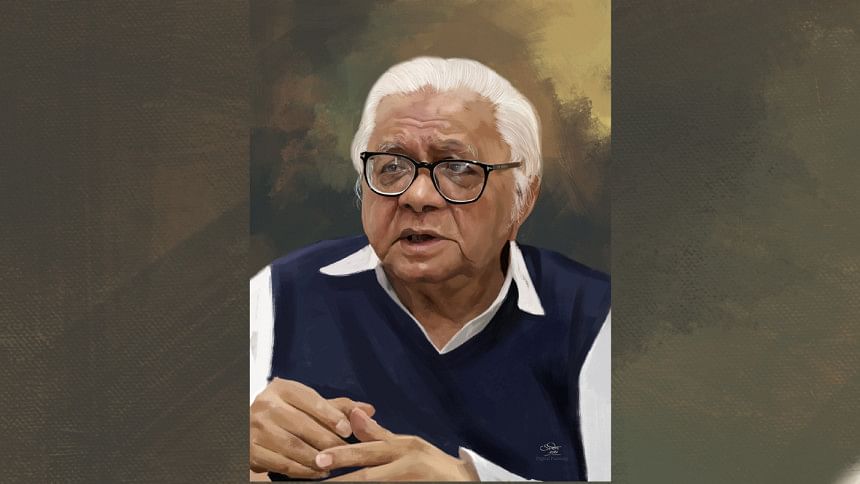Badruddin Umar

Widely respected for his tireless activism on behalf of workers and the underprivileged, Badruddin Umar is a renowned figure in Bangladesh. Throughout his long career, which spans over six decades, Badruddin has consistently used his writing to challenge those in positions of authority and to shine a light on the struggles of ordinary people. His commitment to speaking truth to power has made him a symbol of integrity and courage, inspiring others to fight for justice and equality.
Badruddin is currently the president of the National Liberation Council in Bangladesh and is a prominent member of the Anti-Imperialist and Anti-Fascist Committee in the country. For over four decades, he has dedicated himself to editing the left-leaning magazine 'Sanskriti'.
Badruddin joined Rajshahi University in 1963, where he founded the Department of Political Science and the Department of Sociology. In 1968 he made the decision to leave his post and fully dedicate himself to political activism. This move came as a result of his disagreements with the government of Pakistan.
He has written over a hundred books and an extensive number of articles. Three of his seminal works, "Sampradayikata" (Communalism), "Sanskritir Sankat" (The Crisis of Culture), and "Sanskritik Sampradayikata" (Cultural Communalism), generated intense controversy among the military and civil authorities in East Pakistan due to his fervent opposition to the misguided notion of a communal Pakistan. His three-volume work on the Language Movement in East Bengal, entitled "Purba Banglar Bhasha Andolon o Tatkaleen Rajneeti" (The Language Movement in East Bengal and Contemporary Politics), and his two-volume masterpiece "The Emergence of Bangladesh" are among his most notable works.
The Daily Star celebrates the life and legacy of Badruddin Umar, a revolutionary figure whose activism, incisive criticism, analytical skills, and dedication to truth have made him a beacon of integrity in the country.

 For all latest news, follow The Daily Star's Google News channel.
For all latest news, follow The Daily Star's Google News channel. 



Comments